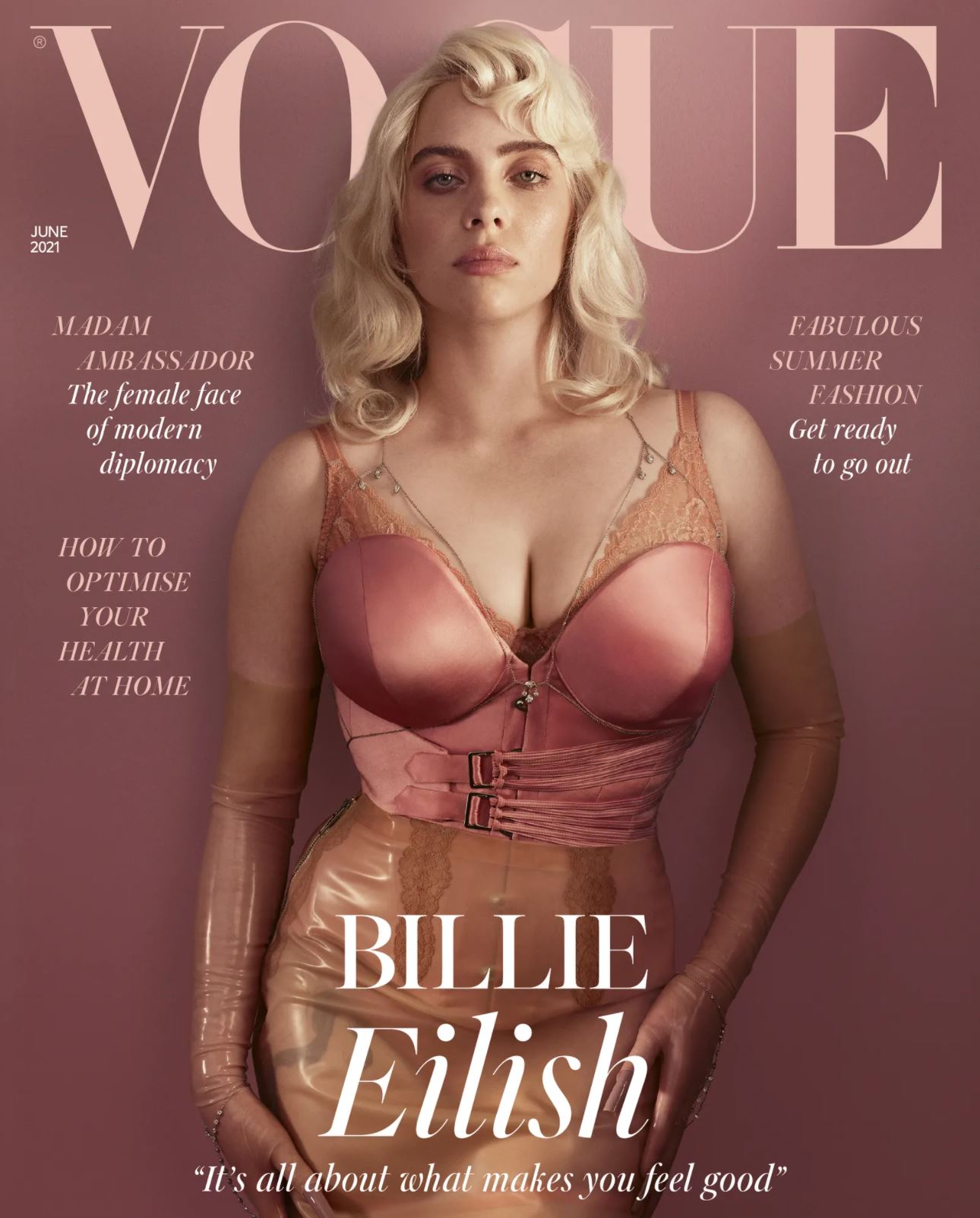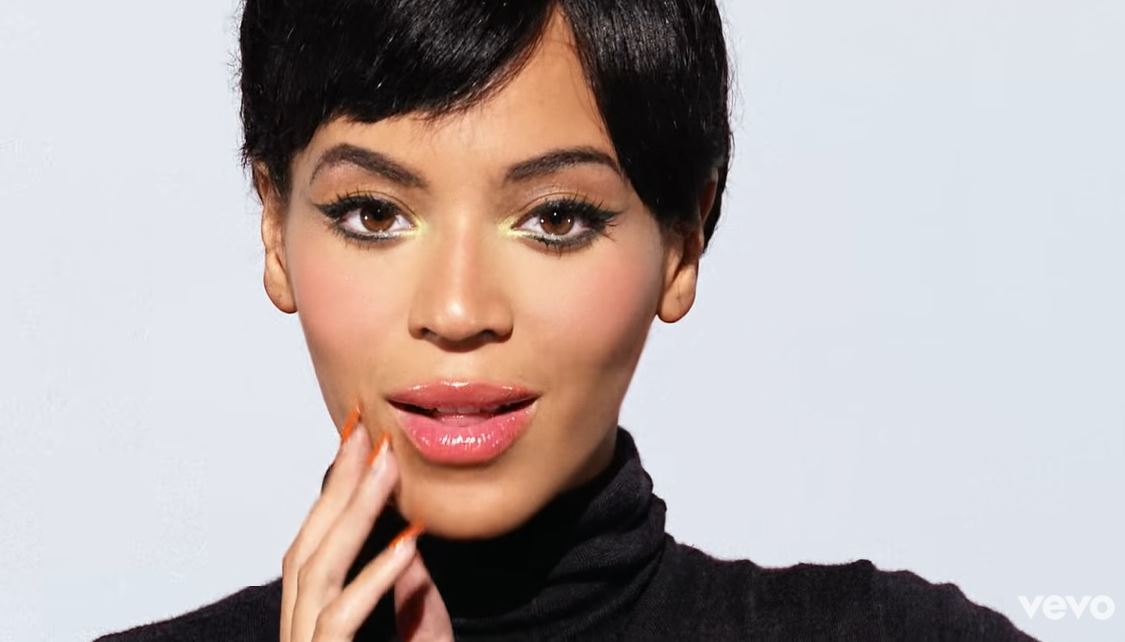This New Billie Eilish



One of the bigger stories of the last few days has been Billie Eilish on the cover of British Vogue. Billie revealed her brand new blondeness a few weeks ago, signaling the start of a new era with a new single, “Your Power”, that dropped last week ahead of the release of her new album, Happier Than Ever, July 30. And while the video for “Your Power” is Billie’s first with her new era hair colour, it’s this British Vogue editorial that’s the real statement about Billie’s Happier aesthetic.
In the interview, she predicted what the reaction would be. She predicted that some people would call her a sellout. Or say that she’s now predictable, because this is often what young stars do – from Britney to Miley and so many before and in between, the transition from teen to young adult in the not-a-girl-not-yet-a-woman phase is to wear less and show more. And then we judge.
There are people who are disappointed in Billie. There are people who are cheering Billie. There are people who think she’s setting a bad example. There are people who are defending her right to choose what she wants. There are those who feel betrayed, because they related to her when she wore baggy clothes and seemed to reject the predominant beauty standard – and on this point, even that’s controversial, because what is “beauty” and what is “standard”? For women, this is a no-win situation. For women in the spotlight, you can’t even count on a draw; it’s an always-lose game, the house always wins. Who is the house, though? The patriarchy? Misogyny?
We just went through this earlier this year after Framing Britney Spears came out, as the culture revisited how Britney was treated, by everyone – the industry, her family, her peers, the media, her fans, everyone. And now here we have Billie, who experienced mega stardom at around the same age, and seems more aware of the downside, and is actively creating space for herself to grow and learn and maybe make mistakes… and it’s still such a fight.
That, to me, is my big takeaway from this piece; not how she looks and what it means or doesn’t mean but what she says about spending your formative years in the most intense spotlight. As she says:
“It’s an insane thing. Young women, we’re expected to know and do everything, and be everyone’s mom when we’re like, 15.”
At that age, Eilish says she wouldn’t have grasped the perspective in “Your Power”. “I used to not understand why age mattered. And, of course, you feel like that when you’re young, because you’re the oldest you’ve ever been. You feel like you’re so mature and you know everything.” But you shouldn’t have to know everything then, she says. The expectation creates space for exploitation. “People forget that you can grow up and realise sh-t was f**ked up when you were younger.”
At the same time, Billie’s also dealing with the consequences of that realisation, that things are f-cked up when you’re younger. And balancing that with choosing in the moment to be exactly who you are instead of who you might be:
“People always say, ‘How would your younger self feel about you now?’ And that’s a good thing to think about in some cases, but I also think you shouldn’t try to be a person that your old self would like, and you shouldn’t try to be a person that your future self is going to be. You should be exactly who you feel like you are and want to be in that moment, otherwise you’re going to go insane.”
Right, but here we are, on the internet, telling her what she’s going to regret, pointing out all-knowingly that who she’s become today and what she says now is not going to be something she’ll be and believe in two years. Like that should stop her from doing what she’s doing in her current form. What’s the point then of living and learning?
That, to me, is the struggle, right there, for someone who is as famous as Billie. Because she’s not just dealing with her own expectations of who she is and who’ll she be, she’s dealing with ours. I often write about how fame freezes a person when it arrives, often permanently trapping them at that age, stunting progress. But the other part of that conversation that we don’t talk often enough about is how fame freezes the spectator, us, the public, where that person is concerned. For someone like Billie, the public has frozen her, fixed her in place, trying to force her to remain in baggy clothes and multi-colour hair, a metaphor for the character that we’ve decided she has to be as long as we want her to be it.
For more on Billie in British Vogue, click here:. Her post with the cover shot has already broken the Instagram record for quickest to a million likes in just six minutes.

